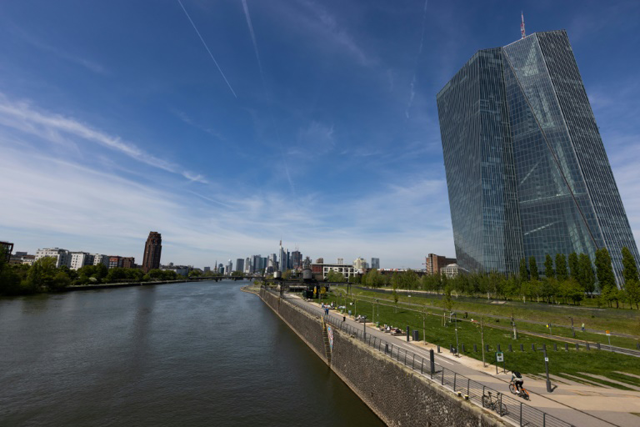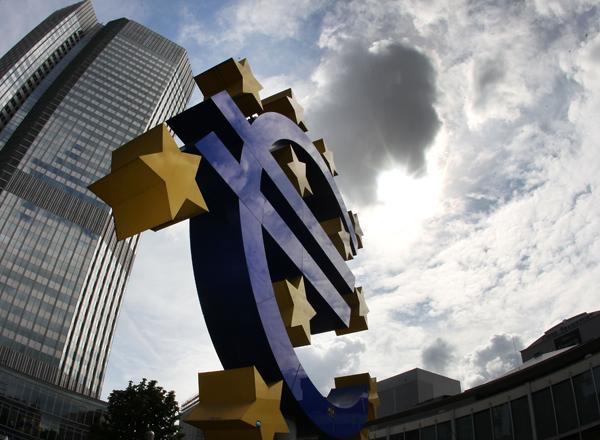You are here
Eurozone inflation dips but ECB to remain hawkish
By AFP - Jun 01,2023 - Last updated at Jun 01,2023
BRUSSELS — Sliding energy prices helped lower eurozone inflation more than expected in May but underlying pressures suggest the European Central Bank (ECB) will still be inclined to raise interest rates, officials and analysts said on Thursday.
Headline inflation for the 20 EU countries using the euro dipped to 6.1 per cent in May, according to Eurostat data.
That was a drop from the 7 per cent figure for April that had reversed five months of declines, and below analysts' consensus forecast of 6.3 per cent.
But inflation remains well above the 2 per cent target set by the European Central Bank, which indicated another round of monetary tightening in two weeks' time.
"Inflation is too high and it is set to remain so for too long," ECB chief Christine Lagarde told a banking congress in Germany.
She suggested that a smaller rate increase was to come, following ECB hikes since July that have pushed up the official borrowing rate an unprecedented 3.75 percentage points.
"We are approaching our cruising altitude," Lagarde said.
Core inflation, which strips out volatile energy, food, alcohol and tobacco prices, is the key signal for the ECB.
In May, that figure came in at 5.3 per cent, lower than the 5.6 per cent recorded in April.
"The persistent nature of core inflation means that the ECB is expected to extend their unprecedented tightening cycle with another 0.25 basis points rise in two weeks, despite signs of slower growth and the potential for increased pressure on the financial system," said Richard Flax of the investment advisory firm Moneyfarm.
Eurostat said energy inflation in the eurozone dipped into negative territory in May, falling by 1.7 per cent.
That reflected a glut on the natural gas market as Europe, now less dependent on Russian fossil fuels since supply cuts over the war in Ukraine, heads into summer.
Inflation in services also slowed slightly, to 5 per cent, but higher prices for food and alcohol, while slowing a bit, were the main prop for headline inflation and a problem for European household budgets.
That component rose 12.5 per cent in May, compared with 13.5 per cent in April. It was also largely responsible for the surprise 7 per cent reading in April that reversed five months of declines.
Back in October, the eurozone was struggling with overall inflation of 10.6 per cent as it confronted the fallout from Russia's war in Ukraine and supply bottlenecks related to the post-COVID recovery.
While inflation has since eased, slowing economic growth and higher loan costs were starting to be bite.
Germany, the European Union's economic powerhouse that is now in recession, saw its inflation rate drop to 6.3 per cent in May from 7.6 per cent in April.
France, the bloc's second-biggest economy, saw inflation dip to 6 per cent in May from 6.9 per cent the previous month
"I'm aware of the risks that weigh on our growth and the French economy," French Economy Minister Bruno Le Maire said on Wednesday, in response to signs of tepid growth and cutbacks by consumers.
The ECB rate increases have flowed through into mortgages, making home loans more expensive and harder to secure for would-be buyers in Europe, weakening some real estate markets.
The ECB said in a report this week that demand for mortgages fell sharply in the first quarter of 2023, leading to a "correction" that risked becoming "disorderly" if recession fears widened.
"The tightening monetary policy is testing the resilience of households and businesses" in the eurozone, Moneyfarm's Flax said.
"Looking ahead, both headline and core inflation will keep falling," said Jack Allen-Reynolds, a eurozone economist for analysis firm Capital Economics.
"But the labour market still looks very tight... As a result, we suspect that the core inflation rate will come down only slowly and it will be a long time before it hits 2 per cent."
Like other analysts, he predicted the ECB would raise interest rates by 25 basis points on June 15 "and probably once more at the July meeting".
Related Articles
BRUSSELS — Eurozone inflation remained unchanged in August, official data showed on Thursday, leaving the European Central Bank (ECB) faced
BRUSSELS — Economic growth in the eurozone contracted in the third quarter, data showed on Tuesday, hit by the European Central Bank's (ECB'
LONDON — It's been a long and tortuous journey, but the eurozone economy is finally back to the size it was before the global financial cris















